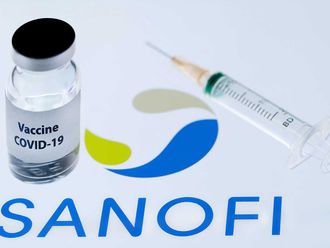London: The euro retreated from a two-week high against the dollar on Friday as lingering hopes that cash-strapped Greece was making progress toward securing fresh funding were dashed.
Jeroen Dijsselbloem, the chairman of the Eurozone finance ministers, said Greece still needs to deliver a list of reforms to receive funding, adding Athens needs to work faster and Eurozone ministers will take stock of progress at the next meeting on May 11 in Brussels.
Similarly, EU Economics Commissioner Pierre Moscovici said that despite some progress in talks with Athens, a deal was still far off. The euro lost ground across the board.
“Dijsselbloem has clearly put the ball back in Greece’s court,” said Jeremy Stretch, head of currency strategy at CIBC World Markets. “Until the next meeting on May 11, the market will keep worrying about Greece’s liquidity.” The euro fell back to $1.0822, from a peak of $1.09 hit in earlier London trade that was its highest level since April 7. It held its ground after a survey showed German business morale rose to its highest level in almost a year in April.
Ifo’s business climate index climbed to 108.6 in April, its highest reading since June 2014 and just beating a forecast of 108.4.
“In the medium term, we think the euro’s downtrend is intact, as the Eurozone’s recovery is not anywhere close to the growth we are seeing in the United States. We are still expecting the Federal Reserve to tighten in September,” Yujiro Goto, currency strategist at Nomura.
The dollar recovered from earlier losses, trading flat on the day at 97.255. Traders were eyeing March durable goods orders with a weaker-than-expected number likely to weigh on the dollar.
“Despite the softer data, we think the market is going to remain focused on risks of a more hawkish Fed message next week, and risks to US front-end yields remain skewed to the upside from current low levels,” analysts at BNP Paribas wrote in a note to clients.
The Federal Reserve meets on April 28 and 29 and there is certain to be much debate on when interest rates should start to rise.
Against the yen, the dollar was flat at 119.55 yen, having pulled back from Thursday’s high of 120.10 yen with some traders citing speculation that the Bank of Japan may start to taper its quantitative easing programme.












